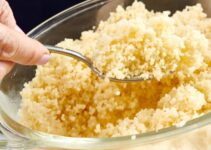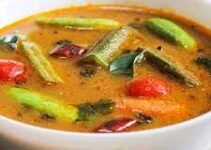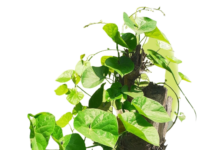Medicinal value of basil (Tulsi)
Holy Basil is an essential herb and has many medicinal applications. Tulsi is used in the treatment of various diseases. Basil plant and its different parts are used in case of insect bites, fever, cardiac conditions, gynaecological disorders, respiratory problems, skin disorders, etc. Basil has been used since ancient times for different ailments. Holy basil is used as a voice improver and as an antiseptic, antiseptic, and bactericide. It is suitable for preventing malaria and is an effective pain killer. In some texts, it is also known as a healer of all diseases. In homoeopathy, basil is very effective in forming the breast during lactation.

Tulsi tea health benefits
Tulsi tea is an essential component of herbal and organic teas, enhancing a sense of well-being. Tulsi tea is a great stress buster and develops resistance against anxiety, tension, and stress. It has many antioxidants that help to contend with free radicals. It is one of the essential alternatives to coffee and tea. Tulsi Tea is suitable for your vision and respiratory system, boosts your immune system and stamina, and maintains your blood sugar level. There are no such side-effects of Green Tea.
Basil seeds control sugar.
All parts of basil are essential for health and medicinal aspects, so the seed part. The decoction of seeds is beneficial for urinary infections. In a study at the initial stage, it has been seen that basil seeds help control blood sugar and manage diabetes. Weight reduction may also be observed if one regularly takes the basil drink. Nutritionally, basil seeds contain vitamins, minerals, fat, and carbohydrates.
How do you make basil recipes?
Basil is used for many dishes such as tomato sauce, pizza, salads, desserts, cocktails, Thai curry, Pesto, etc. Basil can be used for more or less in all types of dishes. To make recipes with Basil, one has to use the smaller basil leaves or cut them into small pieces. Grinding of seeds or other parts may also be used with salads. Tulsi leaves should preferably be used in making different types of recipes. The combination of basil and tomato is excellent for recipes, especially for the Mediterranean region.
Nutrition facts about basil
Basil is known as the king of herbs and rich in phytonutrients. Basil is one of the herbs that is widely grown across the world. Basil has many nutritional benefits, too. It is full of antioxidants. Tulsi contains minerals like Vitamin A, beta-carotene, potassium, iron, copper, manganese, and magnesium. Biochemical compounds such as orientin and vicenin act as anti-oxidants. Basil leaves contain eugenol, citronellol, and limonene, which are used in anti-inflammatory.
What is a basil herb?
Basil Herbs are an essential plant from a health point of view, especially for women who devote their time to the kitchen. The basil plant has moderate height and is a good source of oxygen. It is one of the best sources of oxygen. Ancient Indian philosophers say that a house without a Holy Basil is considered as dry and unhealthy as a crematorium. The growing of basil plants is extremely useful in cleaning the surroundings.
What is Tulsi?
Basil (Tulsi) has many health and medicinal benefits. It is about 3-5 feet tall. The leaves are 3-5 cm long and have a powerful fragrance. Basils are of three types: basil, white basil, and camphor basil. The flowering time of basil is winter, and it has seeds reddish-black.
What is Tulsi-ginger?
The combination of Tulsi-Ginger is perfect for health purposes. When Tulsi, Ginger, and other herbs are combined, they are beneficial for many ailments. If somebody experiences a cough and cold, it is recommended that the person should take the decoction of basil, ginger, and black pepper with honey three times a day. A mix of holy basil leaves, onion juice, and ginger juice is used for dry cough. The symptoms of high fever can be considerably reduced when a person takes a mixture of basil leaves, neem leaves, ginger powder, and long pepper. If you have a stomachache, take the juice of Basil leaves (10 ml) + Lime juice (20 ml) and ginger juice.
10 excellent benefits of basil (Tulsi)
- Tulsi for stress management: Holy basil leaves are a stress buster and mood elevator. Chewing fresh Tulsi leaves to deal with stress and helps manage tension and anxiety. Tulsi tea also helps in reducing stress. Chewing of 10-12 Tulsi leaves helps in controlling pressure.
- Basil for fever: The decoction of basil leaves, neem leaves, powder of ginger, and powder of long pepper can reduce fever and its symptoms considerably. Basil leaf tea is quite effective against malaria and dengue fever, especially in the rainy season. During fever, the legs become cold, so applying the paste of Tulsi leaves is beneficial.
- Tulsi prevents heart disease: Basil leaves show a positive impact in reducing cholesterol levels in the body, thereby helping in the prevention of cardiac diseases. Tulsi leaves also act as a tonic for the heart. The flow of blood circulation is enhanced when fresh leaf juice is applied locally.
- Cough home remedy by Tulsi: Tulsi leaves are used as home remedies in treating cough and cold. To cure cough and cold fever, one should take the decoction of basil flowers, ginger, black powder, long pepper, and honey at least three to four times a day. Holy basil is also helpful for chronic cough and cold. For this, one should take the mix of Basil leaves + mint + black pepper in a dose of 30 ml twice daily. It is good to reduce the symptoms of cough and cold. Take the juice of Basil leaves and sugar for a person suffering from expectorant. The mixture of Tulsi leaves, onion, and ginger juice for a dry cough helps manage and control the case.
- Basil removes kidney stones: Tulsi juice drinking along with honey for six months helps to expel the Kidney stone (calcium oxalate) via the urinary tract. Tulsi acts as a detoxifier, reducing uric acid levels in the body. It also prevents the formation of calcium oxalate in the kidney. Calcium oxalate and uric acid compounds are responsible for constructing Kidney Stones. Since holy basil has a painkiller effect, it also reduces the impact of pain caused by kidney stones. Thus, Holy Basil can be used as a home remedy to expel kidney stones, yet it takes time to show the desired effect.
- Tulsi reduces stomach problems: Basil shows good impacts on stomach problems such as acidity, flatulence, constipation, etc. Sometimes hyperacidity leads to weakness; here, Tulsi seeds cooked in water are given to overcome the problem. For acute stomach problems, the decoction of basil leaves, ginger, honey, and salt is provided for two weeks. Recently, it has been shown in a scientific study that basil acts against stomach ulcers. The juice of basil leaves, lime, and ginger is beneficial for stomachaches. It also eases from gaseous distension of the stomach.
- Basil for dental protection: Powder of Tulsi dry leaves is used for brushing teeth, thus helping protect teeth. It is also used as a toothpaste when used with mustard oil. Mouthwashing through basil leaves means avoiding many mouth diseases such as gum diseases, pyorrhoea, and other dental infections. To relieve a toothache, apply a basil leaf juice and camphor mix. Chewing of Tulsi leaves is beneficial for mouth ulcers. It protects you from bacteria and germs that are the primary source of mouth diseases.
- Tulsi for headache treatment: Basil helps relieve headaches. To get instant relief from headaches, applying the paste of Tulsi and Sandalwood on the forehead is suggested. Inhalation of the powder of dried leaves of Basil eases migraines and headaches.
- Tulsi benefits for skin diseases: Tulsi is known for healing many diseases and ailments. Juice of Tulsi leaves is used to treat ringworm and skin disorders. For skin problems, the mix of Tulsi and Aloe Vera is beneficial. Some physicians also used this helpful herb for leucoderma cases. It is used as a skin ointment.
- Basil for asthma cure: The leaves of Tulsi are used as home remedies for treating respiratory disorders such as cough, cold, influenza, mild-asthma, and bronchitis. For these disorders, taking the decoction of Basil leaves + honey and ginger is advisable. The mix of Tulsi leaves, common salt, and cloves is also used in curing influenza. Many Ayurvedic cough expectorants and syrups use basil as one of the ingredients. Chewing of Tulsi leaves is also beneficial in case of cold and flu. The asthma patient should take a mix of Tulsi juice and black pepper.
Top 10 wonder benefits of basil leaves
- Tulsi is an antiseptic, bactericide, deodorant, and anti-oedematous.
- Fresh basil juice is instilled in ears to relieve earache.
- The paste of basil and black pepper is used in case of insecticide.
- As first aid, the paste of fresh leaves is used in case of bleeding.
- Basil juices, along with honey, remove hiccups.
- Basil-extracted oil is used for painkillers.
- Basil leaf juice with honey is suitable for obese people. An obese person should take this combination for 2 to 3 months.
- The mix of Tulsi leaves and honey eases a sore throat.
- Basil is essential for children as it is a weapon against cough, cold, diarrhoea, vomiting, etc.
- Tulsi is good for sore eyes and night blindness. For a good result, 1 to 2 drops of basil juice are put into the eyes.
Precautions
The combination of basil and milk should be avoided. Basil and heated honey should not be consumed together.




